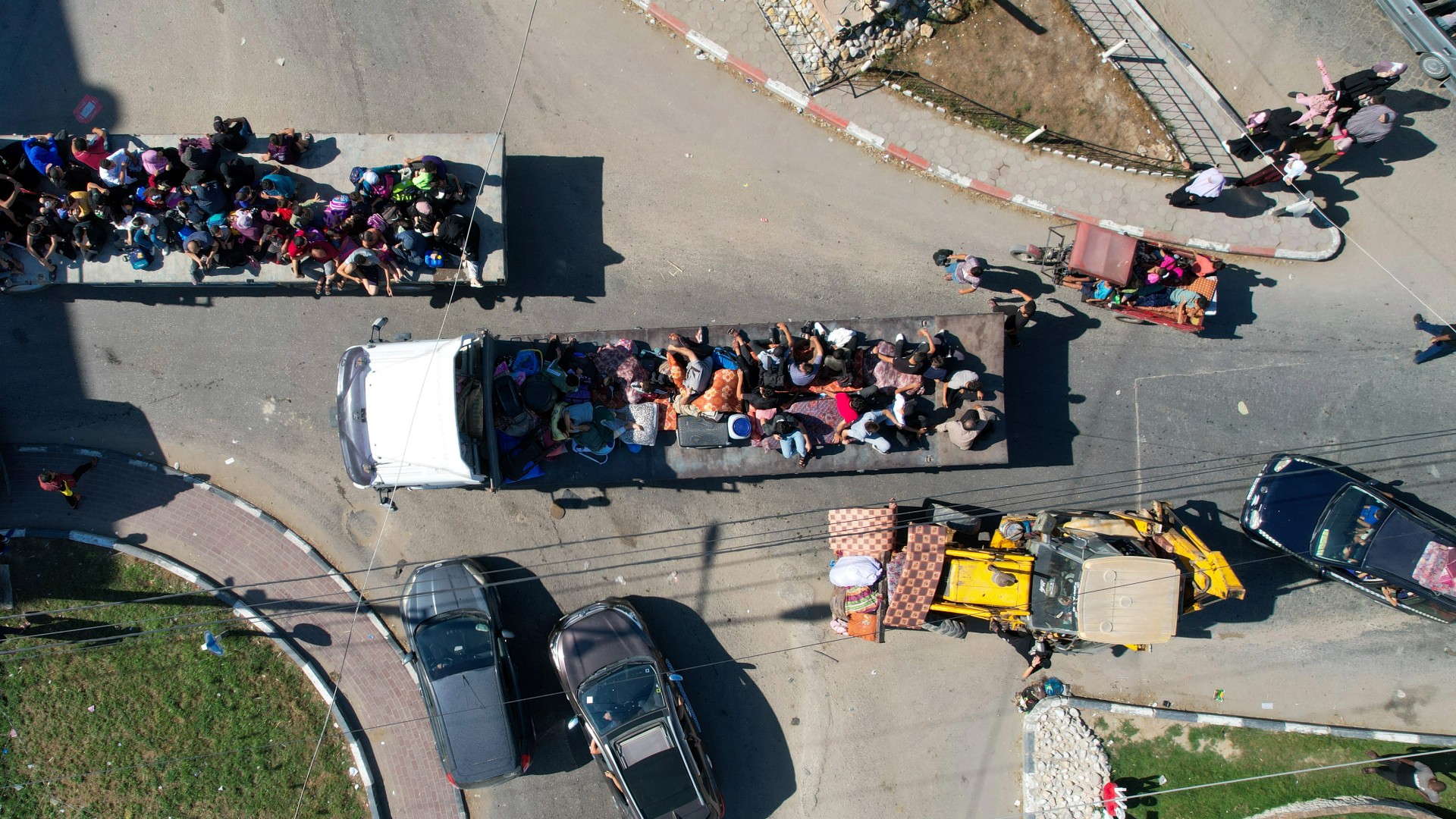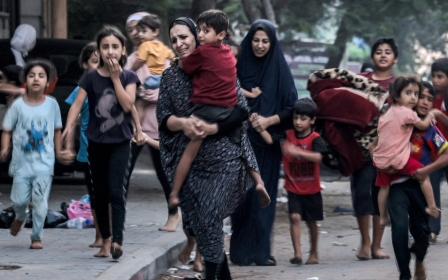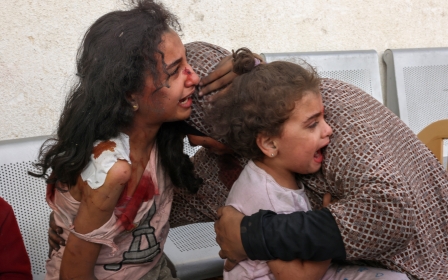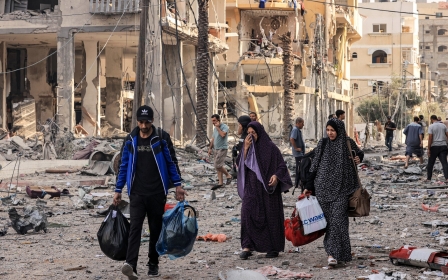Israel-Palestine war: A journalist's terrifying escape to south Gaza
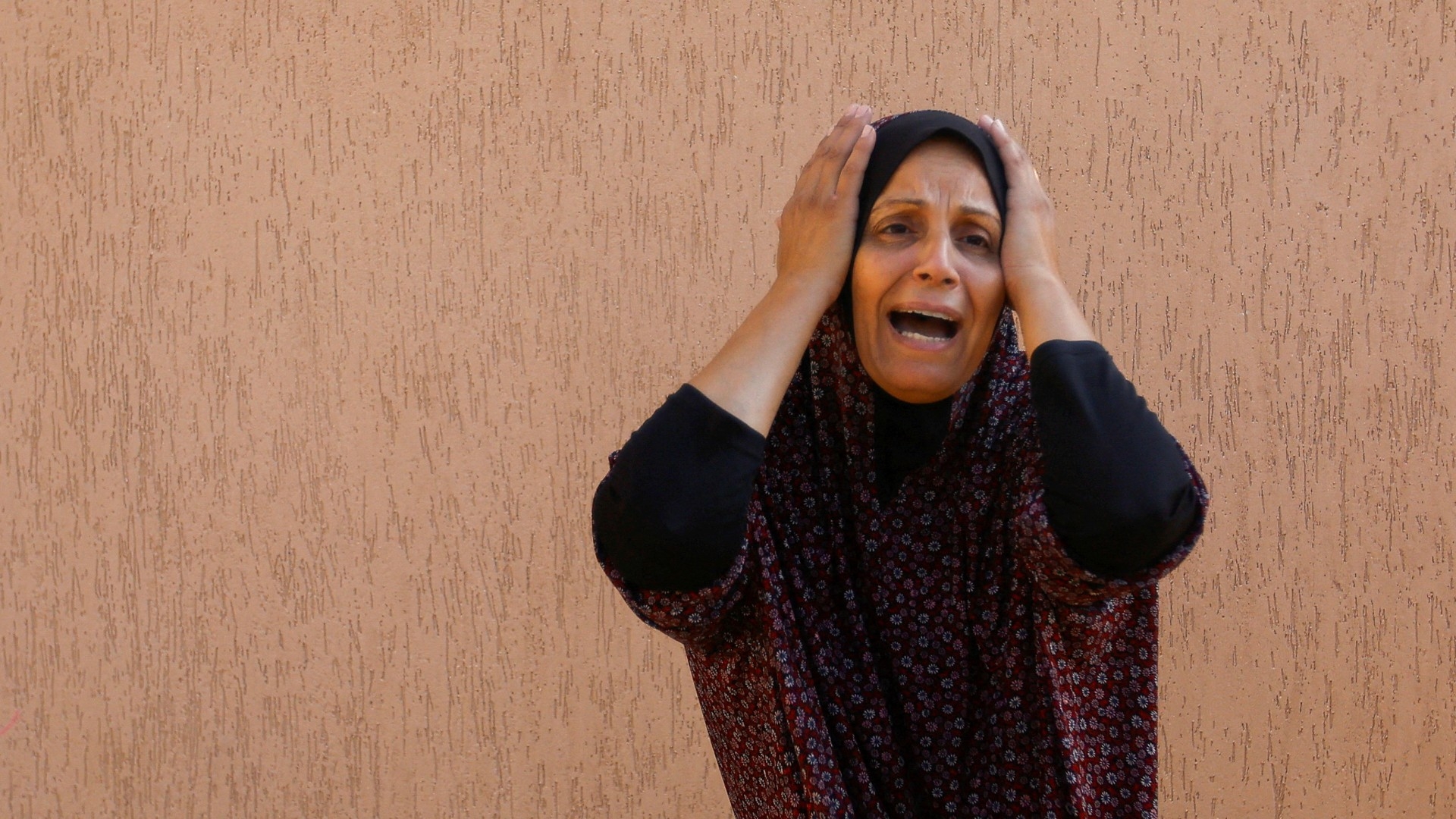
Aseel Mousa is a 25-year-old freelance journalist working with Middle East Eye. She lives in Tal al-Hawa in the western Gaza Strip. On Friday morning, she was one of over a million Palestinians ordered by Israel to flee to Gaza's south if they wanted to live. Here, Aseel tells her story:
On Friday morning we didn't have any internet or electricity. Israel has cut both from Gaza, as well as food and water, as it bombs us relentlessly. Around 6am, my cousin managed to get hold of us on the telephone.
"Aseel, we saw on the news, and I know you probably don't have internet, that Israeli army spokesman Avichay Adraee is threatening residents of northern and western Gaza to evacuate to the southern region," he told me.
Our situation was already dire. We were incredibly stressed and anxious. I had an evacuation bag prepared with only my passports, my ID and a set of clothes.
New MEE newsletter: Jerusalem Dispatch
Sign up to get the latest insights and analysis on Israel-Palestine, alongside Turkey Unpacked and other MEE newsletters
I couldn't decide what to take with me. Tal al-Hawa is my home. I've lived there for 25 years. All I took were some identification documents.
My family and I left our home and sought shelter with relatives in the south, at my uncle's place in al-Maghazi, in central Gaza.
The journey there was terrifying. People were fleeing in droves. Israel only gave us 24 hours to flee south, and hundreds of thousands of people have taken whatever they can carry and are now on the move.
It reminded me of the Palestinian TV series The Palestinian Diaspora, depicting the events of 1948. Families were moving in trucks: children, young, old, all in transit. We travelled in my father's car, seven of us in total.
Upon reaching al-Maghazi, a refugee camp for Palestinians displaced in the 1948 Nakba, we quickly realised it wasn't safe there either. As the saying goes, we fled from death to death.
There's still no electricity, internet, or even water. Food supplies are very limited. In my uncle's two-storey building, there are approximately 30 to 40 people who fled from the north.
Follow Middle East Eye's live coverage for the latest on the Israel-Palestine war
There's no safe place in Gaza. There are no bomb shelters. Israeli bombardments continue relentlessly. The sounds of rockets are terrifying. Nearly 2,000 Palestinians have been killed by Israeli bombing in a week.
I've lost touch with many friends who lived in the western Gaza region. We've all dispersed to different areas in the south. One friend is in Rafah on the Egyptian border, another in Khan Yunis. We're scattered, unsure if we'll ever reunite. The situation is deeply distressing, and the feelings are overwhelming.
Ordinary citizens, with no affiliation
I've met people here in the camp, like a young woman named Mariam. She discovered that her house had been destroyed through her brother, who had emigrated to Germany. He saw photos online and called to tell them about it. But without internet access, Mariam's family couldn't even see the pictures for themselves.
They had previously rebuilt their house after it was destroyed in Israel's war on Gaza in 2008, only for it to be demolished again now. Mariam's mother was devastated, unable to speak or communicate, and her father broke down in tears.
They're ordinary civilians, not affiliated with any political party, and they don't understand why their lives and homes are being targeted.
Mariam's father, Hassan, works in Israel. He has a permit but, after the Beit Hanoun (Erez) crossing was destroyed in the Hamas-led attack last week, he fears he won't be able to work any more. This would cut off the family's primary source of income. Mariam told me that, without his income, they might starve.
Mariam was recently engaged. Everything they had bought for her new home was lost when the house was destroyed.
I can share countless stories from people around me. But if you were to ask how I feel, I'd probably break down.
I work as a freelance journalist. BBC Radio, a Canadian TV station, and an American TV station have reached out to me. I've tried my best to amplify our voices to the western media.
But with the limited connectivity and lack of electricity, communication is challenging. I resort to recording videos or voice notes and send them to the producers, letting them know that I could be targeted at any moment.
If I can't be live during the programme due to connectivity issues, I have back-ups in place to ensure our stories are heard.
Middle East Eye delivers independent and unrivalled coverage and analysis of the Middle East, North Africa and beyond. To learn more about republishing this content and the associated fees, please fill out this form. More about MEE can be found here.


